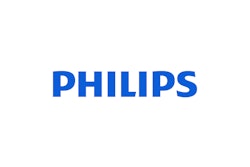Philips Medical Systems parent Royal Philips Electronics has formed a molecular imaging collaboration with biotechnology company CellPoint. Philips will work with CellPoint to optimize the Englewood, CO-based firm’s imaging agent technology for its SkyLight gamma camera.
The firms said they will share clinical trial costs, and hope to develop a cost-effective and accessible molecular imaging technology for cancer diagnosis and pre-screening of patients for therapy. Utilizing clinical trial data, Philips will further develop and refine imaging techniques for SkyLight, according to the Andover, MA-based vendor.
The agreement will utilize CellPoint's ethylenedicysteine (EC) drug conjugate technology, a delivery system that functions as a chemical bridge linking tissue-specific ligands or pharmaceutical compounds to radioisotopes for cancer diagnosis and treatment, Philips said.
Of diagnostic import, the firms will collaborate on CellPoint’s first molecular imaging agent, Tc-99m-EC-deoxyglucose. EC allows the deoxyglucose to be labeled with technetium-99m, Philips said. As a result, Tc-99m-EC-deoxyglucose will be used to target tumors with SPECT cameras (including Philips' nuclear medicine cameras) deployed to image them, according to the vendors.
SPECT imaging data will be used to determine the location and size of tumors, as well as predict required therapeutic doses, Philips said. The phase I trial began in April at the University of Texas M.D. Anderson Cancer Center in Houston.
By AuntMinnie.com staff writersSeptember 29, 2003
Related Reading
Philips to outfit Wisconsin Heart Hospital, September 25, 2003
Cedara, Philips to partner in MRI, September 23, 2003
Philips adds to Integris, September 19, 2003
Philips goes direct in Texas and Oklahoma, September 18, 2003
Philips takes aim at molecular imaging, August 19, 2003
Copyright © 2003 AuntMinnie.com




















